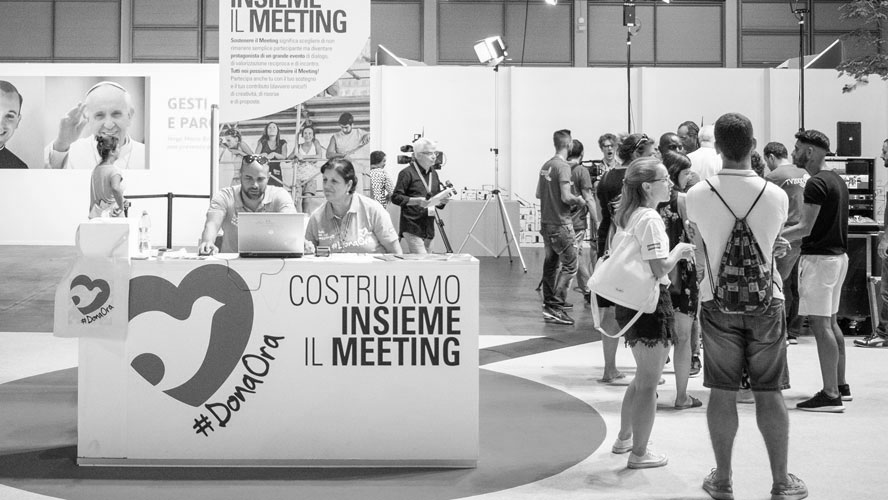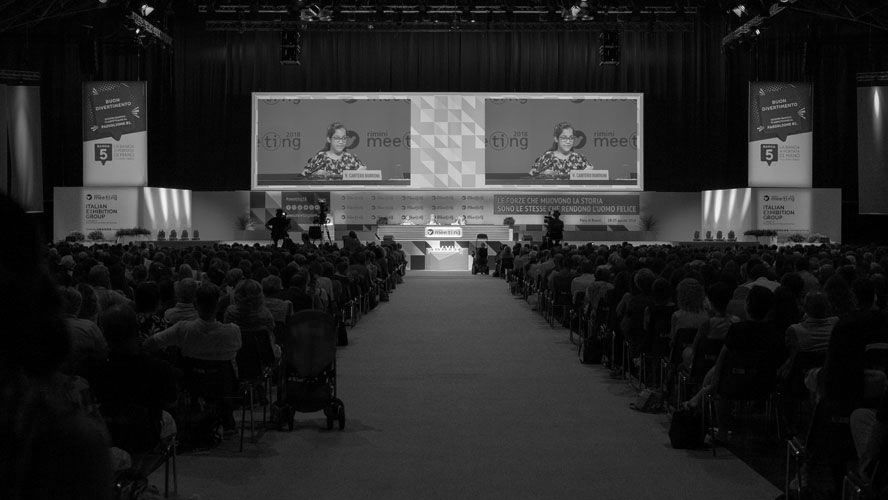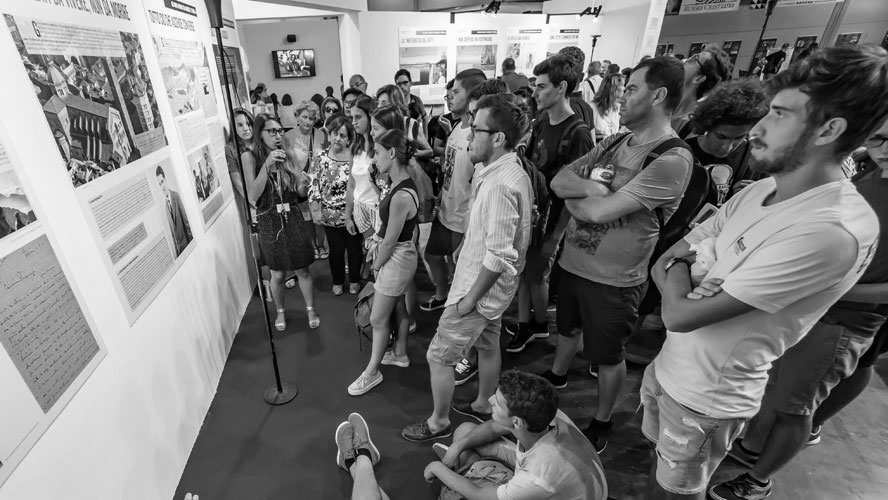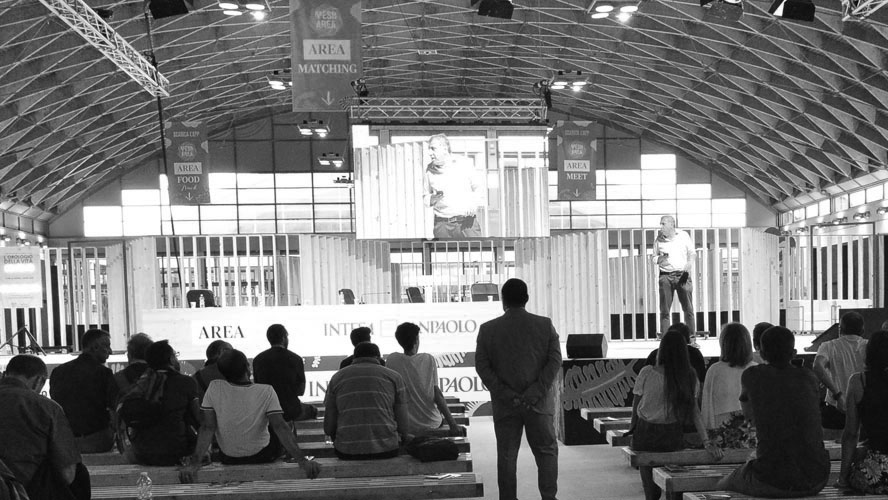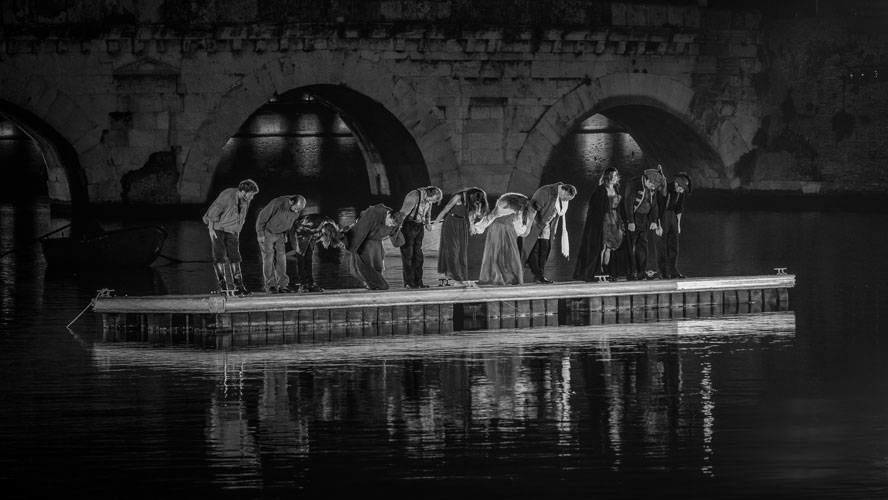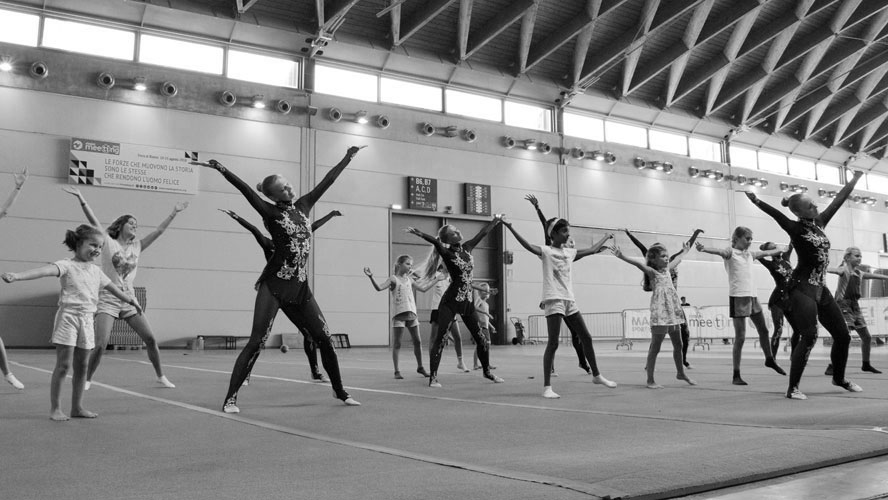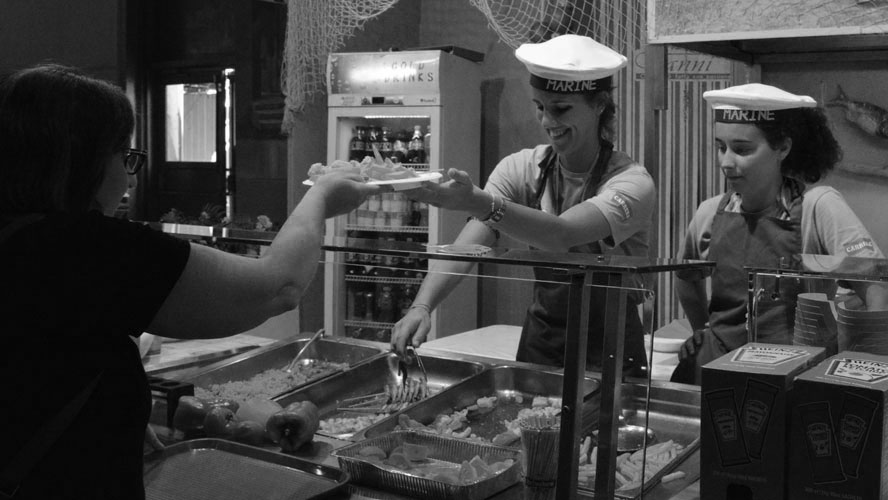2019 Edition
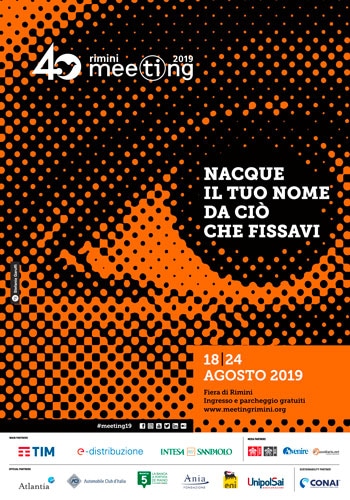
“Your Name Was Born From What You Gazed Upon”
August 18-24, 2019 | Rimini Expo Center
40th Meeting for Friendship Among Peoples
We are facing something entirely new in our times. The usual words no longer suffice to grasp it, and the analyses long employed in the effort to understand the crisis–or rather, crises–of our world seem like blunted tools.
On the one hand, there is a stunning capacity to build, manipulate and control reality through an increasingly widespread technological power, while on the other hand, there is an ever deeper bewilderment about the reason each of us is in the world and about the society we want to build. Thus, paradoxically, the power of technology, which moves the world’s economy and politics, is accompanied by the endemic powerlessness of poverty–a poverty of material things, but above all of meaning–that is spreading throughout the world.
What new thing is forcing its way forward? It is the most hidden and apparently taken for granted reality, one which is also more essential and crucial than all the rest: the “I” of each of us.
This reality of the human subject is the burning point of the whole world, upon which all the macrophenomena of history ultimately depend. But the greatness and restlessness of the “I” in each of us lies in its self-awareness, in the possibility–always open–to seek and discover what makes life worth living and building. This is the grounding for everything else: the substance of our consciousness enables us to face the challenges of history.
For this reason, the most interesting and pertinent question of our present is: where is the “I” born? Where does the “face” of each of us come from? What gives irreducible weight and meaning to our own “name”? Without a face, one cannot look at or enjoy anything; without a name, one is reduced to the nothingness of an indistinct mass.
This is the very acute and disarming question Nicodemus asked Jesus: “How can a man be born when he is old? Can he perhaps enter his mother’s womb a second time, and be born again?” Old age is not just a matter of one’s years, but above all that of one’s heart and gaze. How is the face of a person born, and how can it continue to be reborn?
The lines of a poem by Karol Wojtyła, which provide the title for the Meeting 2019, focus on the fact–experienced by everyone, at least in the most important and crucial moments of life–that one’s “name,” that is, one’s human substance, emerges from what one looks at intensely, that is, from the relationship with someone other than oneself, the relationship with an other who calls one to exist. The poem refers to the image of Veronica fixing her gaze upon Christ as He passes with the cross. Many encounters in the Gospels describe this dynamic, like that of Zacchaeus, who sees Jesus looking at him, calling him by name, saying, “Hurry down! I’m coming to your house!”
The “I” can only be reborn in an encounter, like that of a child with her mother, or an older person with the beloved or a friend, a fully human encounter, in that it opens the “I” to a horizon of beauty, a desire for fullness, an urgent need for truth and justice that it never would have dreamed of alone.
In every true encounter, one feels “preferred”: precisely him, precisely her. It seems like the most fragile thing, the most exposed to chance, but it is the most powerful experience we can have, the only one that can enable us to stay on our feet in front of the challenges of our times. The uncertainty and existential confusion that mark our era are not faced first of all through willpower or ethical coherence. No technique for “self-help,” no reflection could have the regenerative power of an encounter: only this sense of preference can save us from nothingness.
In one of the most insightful passages in The Religious Sense, Fr. Giussani wrote: “At this moment, if I am attentive, that is, if I am mature, then I cannot deny that the greatest and most profound evidence is that I do not make myself, I am not making myself. I do not give myself being, or the reality which I am. I am ‘given.’ This is the moment of maturity when I discover myself to be dependent upon something else. […] Here we are speaking of the intuition, which, in every period of history, the more intelligent human spirits have had. It is an intuition of this mysterious presence, which endows the instant, the ‘I’ with substance (solidity, density, foundation). I am you-who-make-me […]. So I do not consciously say ‘I am,’ in a sense that captures my entire stature as a human being if I do not mean ‘I am made.’ The ultimate equilibrium of life depends on this.”
Becoming aware of “existing,” having the consciousness that one is “called” to exist is the most shocking experience for all aspects of culture, from science to economics, from politics to art. It is the grounding for the possibility of serious engagement in reality.
In the 40th Meeting, this is what we want to offer as the most precious contribution of its history and its present engagement: only the encounter with “alive” people can re-open the “I” of each of us to all the dimensions of the world.







